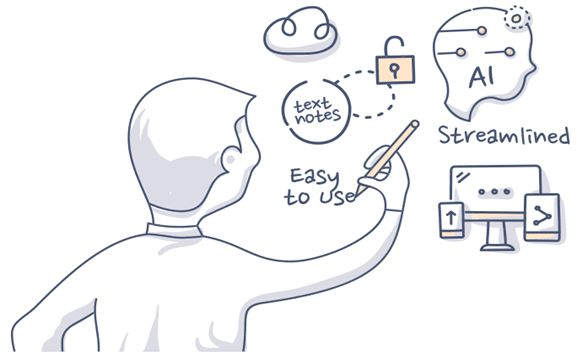Healthcare services have evolved recently and are adopting new technologies erupting in the technological world. The services have been integrated with AI systems to handle a wide range of patient data. AI is not only for the future but also for the present, where it offers practical opportunities to facilitate productive services in society.

Personalized Patient Support
AI has made a pivotal contribution to health services, where it has customized patient treatment and information. AI can predict individual patient data using machine learning and data analytics to customize therapy to specific attributes and demands. This approach has facilitated efficiency and reduced adverse outcomes, thus, higher patient satisfaction.
Enhancing Drug Innovation and Development
AI has transformed the drug discovery process and development, accelerating the introduction of new niches in the market. Using machine learning, big datasets can be analyzed by simulating complex biological analogies. This helps analyze and forecast the efficacy and cover of profiles and optimize dose treatments, decreasing the time and resources.
AI in Medical Diagnosis
The most incredible thing that has happened in the medical industry is medical diagnosis for patient care. With leading data analysis processes and machine learning models, AI systems can analyze many patient reports with incredible precision and quickness. AI is programmed to facilitate the diagnosing procedure, leading to faster disease detection. Medical diagnosis has facilitated the improvement of patient outcomes, leading to satisfaction.
Automating Administrative Duties
AI-powered systems are helpful in health service institutions because they facilitate administrative work and computerisation. In the past years, health practitioners used to do a lot of paperwork, which limited the time spent taking care of patients, unlike these days. The AI systems and software are less laborious and time-saving, hence helping optimize the organization’s operations and leading to an increase in operational efficiency and cost savings.
Ethical Concerns and Challenges
Ethical concerns and challenges are faced in all sectors and need regulations. AI in health services has not been left behind to prevent exploiting patient data and other confidential information. Data security and privacy are vital in healthcare, and the use of ethical AI in making decisions should be handled with care to ensure that patients’ rights are protected. There is a need for innovations and research on reducing the issues associated with AI technologies and ensuring safe integration in health service settings.
As AI evolves and grows, healthcare services are positively impacted, bringing about robust change. Healthcare practitioners invest in creating and inventing new insights and changing healthcare delivery worldwide through Artificial Intelligence. Predictive analysis and virtual health assistants have proven that adopting new technologies can impact any field.
In summary, Artificial Intelligence is disrupting the health services protocol by offering health practitioners powerful tools and resources that allow them to provide efficient and effective monitoring and treatment of patients. Although there are challenges due to cybersecurity threats, ethical rules, and regulations, practitioners are advised to use AI tools cautiously. Embracing the new AI technology will result in a transformation in the future generations.

